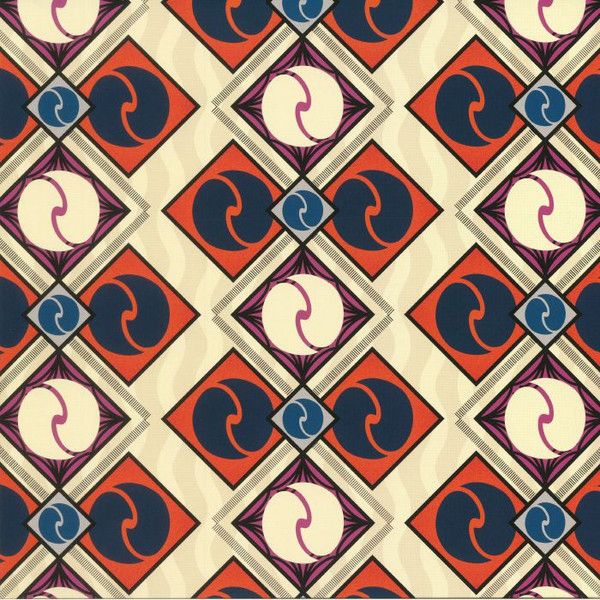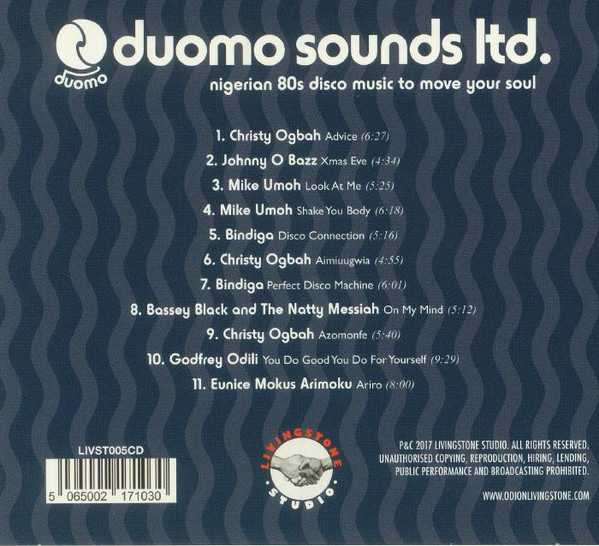By continuing your navigation on this website, you accept the use of cookies for statistical purposes.



Various Artists
Duomo Sounds Ltd. Nigerian 80s Disco Music To Move Your Soul
Humphrey Aniakor started Duomo Sounds after a trip to Milan. The idea was to produce a new sound for the emerging generation. A sleek funky but refined, Nigerian disco sound. This compilation captures all of that intention with a broad array of artistes. The music is sometimes sung in local Nigerian languages and sometimes in English but always with an African Accent. Modern grooves for an African market.
After several months spent hanging out at studios in Los Angeles and New York, observing the musicians, producers and engineers at work. He went to nightclubs to study what kind of sonic textures made the crowd move. And when he felt he had gotten the hang of it, he returned to Nigeria to set up his record label. A label that would showcase the au courant, cosmopolitan face of the Nigeria’s emerging young generation. That would encompass the boundlessness of imagination, focus, persistence and craftsmanship. That would deliver music that touched the soul.
There was hardly a shortage of available musical talent by 1980, as Duomo was preparing to launch. The seventies had seen a massive flowering of bands offering a wide array of sounds and styles. But 1980 proved to be the year that would change the topography of the music landscape and its approach to packaging talent. Artistes like Mike Umoh (erstewhile drummer with Bongos Ikwue and the Groovies), Bindiga (Ghanian afrofunk musicians), Christy Ogbah (who worked as a policewoman) bring their personal artistry to create the new sound.
And he would call it—what else?—Duomo. Duomo Sounds Limited.
This combination created high-quality Nigerian music but it also marked the end of bands as the focal point for the popular music marketing. After Okotie’s breakthrough, it became clear that the eighties would be the era of the solo artist. And this would lead to the fracture of established bands as members opted to roll the dice on solo careers.
1
Christy Ogbah - Advice
2
Johnny Bazz - Xmas Eve
3
Mike Umoh - Look At Me
4
Mike Umoh - Shake Your Body
5
Bindiga - Disco Connection
6
Christy Ogbah - Aimiuugwia
7
Bindiga - Perfect Disco Machine
8
Bassey Black & The Natty Messiah - On My Mind
9
Christy Ogbah - Azomonfe
10
Godfrey Odili - You Do Good You Do For Yourself
11
Eunice Mokus Arimoku - Ariro
